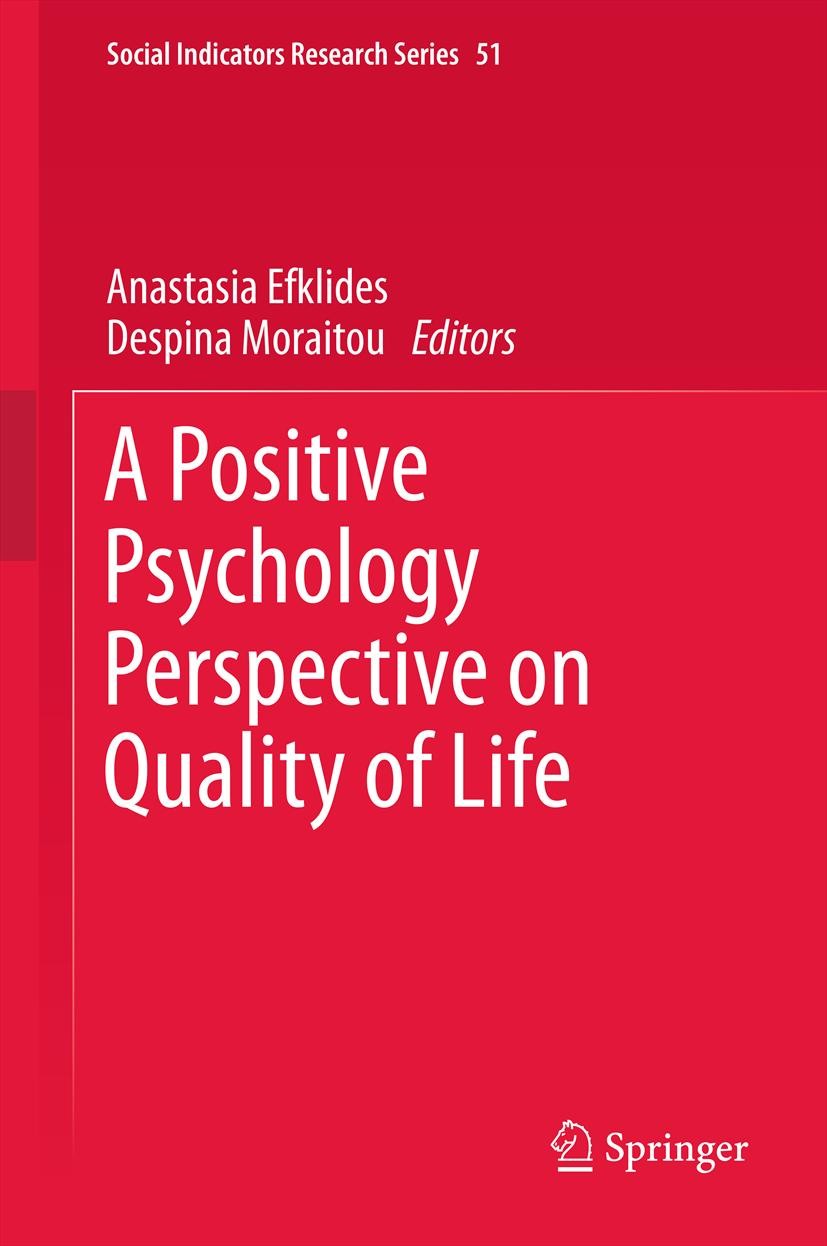| 期刊全稱(chēng) | A Positive Psychology Perspective on Quality of Life | | 影響因子2023 | Anastasia Efklides,Despina Moraitou | | 視頻video | http://file.papertrans.cn/142/141746/141746.mp4 | | 發(fā)行地址 | Provides new evidence on the relations of positive psychological qualities with Subjective Well-Being and Quality of Life.Provides a motivational and self-regulation account for the mechanism that und | | 學(xué)科分類(lèi) | Social Indicators Research Series | | 圖書(shū)封面 |  | | 影響因子 | The construct ‘‘quality of life (QoL)’’, since the 1980s, when it was introduced, is being used mainly in the context of health problems. Areas of one’s life that contribute to QoL are good physical and mental health, efficient cognitive functioning, social support, being able to meet the requirements of professional life, positive emotions, etc (Power, 2003). Work on subjective well-being (SWB), on the other hand, was developed in the context of healthy everyday life; it also has a history of more than 30 years. During this 30-year period factors that have an impact on SWB, such as SES, gender, health, age, and religiosity have been identified (Diener, 2000). A third independent line of research pertains to what has been called Positive Psychology (Seligman & Csikszentmihalyi, 2000), that is, an emphasis on human strengths, such as optimism, hope, wisdom, positive emotions, resilience, etc., which contribute to positive functioning in life. Recently, SWB has been associated to human strengths and to the movement of positive psychology but this did not happen for QoL, possibly because of its emphasis on people with health problems. However, QoL can be conceived of as a generic term | | Pindex | Book 2013 |
The information of publication is updating

|
|
 |Archiver|手機(jī)版|小黑屋|
派博傳思國(guó)際
( 京公網(wǎng)安備110108008328)
GMT+8, 2025-10-26 23:06
|Archiver|手機(jī)版|小黑屋|
派博傳思國(guó)際
( 京公網(wǎng)安備110108008328)
GMT+8, 2025-10-26 23:06


